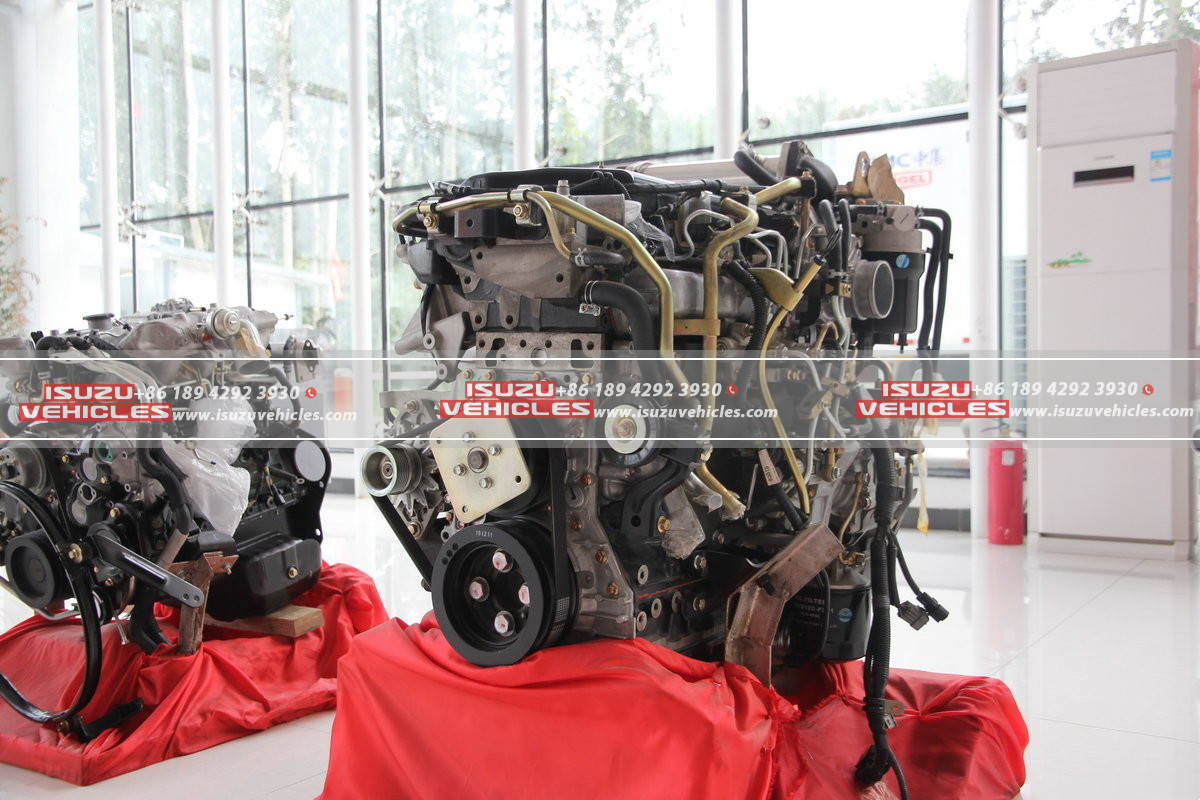1. The Critical Role of Regular Engine Maintenance in Fleet Efficiency
For businesses relying on ISUZU-powered fleets, engine maintenance is not just a routine task—it’s a strategic imperative. Regular upkeep ensures operational reliability, reduces unexpected downtime, and extends the lifespan of vehicles, directly impacting profitability. ISUZU engines, known for their durability and performance, are designed to withstand demanding conditions, but their longevity hinges on consistent care. Neglecting maintenance can lead to costly repairs, fuel inefficiency, and disruptions in logistics, particularly in industries like transportation, construction, and municipal services.
A logistics company in Germany reported a 25% reduction in engine-related breakdowns after implementing a structured maintenance schedule for its ISUZU fleet. By adhering to manufacturer-recommended service intervals, the company minimized unplanned repairs and maintained delivery timelines, underscoring the financial and operational benefits of proactive maintenance.
2. Essential Maintenance Practices for ISUZU Engines
To maximize the performance of ISUZU engines, operators must adopt a systematic approach to maintenance. This involves a combination of routine checks, proactive issue resolution, and leveraging modern technology to stay ahead of potential problems.
Routine Inspections and Fluid Management
Regular inspections are the backbone of effective engine maintenance. Key tasks include monitoring oil levels, coolant quality, and air filter conditions. ISUZU engines require high-quality lubricants to reduce friction and prevent wear, while clean coolant ensures optimal thermal management. Replacing fuel filters at recommended intervals is equally critical, as contaminated fuel can lead to injector clogging and reduced efficiency.
- Oil Changes: Follow ISUZU’s guidelines for oil replacement intervals, typically every 15,000 kilometers or as specified for severe operating conditions.
- Coolant Checks: Inspect coolant levels and pH balance to prevent corrosion and overheating, common issues in heavy-duty applications.
Proactive Issue Resolution
Identifying and addressing minor issues before they escalate is vital. Common problems in ISUZU engines include turbocharger wear, belt tensioner failures, and exhaust system leaks. For instance, unusual noises or smoke emissions often signal underlying issues that require immediate attention. Implementing vibration analysis and thermal imaging during inspections can help detect misalignments or overheating components early.
A construction firm in Australia avoided a major engine overhaul by identifying a failing turbocharger during a routine inspection, showcasing the value of proactive diagnostics.
Technology-Driven Maintenance Strategies
Modern ISUZU engines are equipped with advanced telematics systems that enable predictive maintenance. These systems monitor real-time data such as engine temperature, fuel consumption, and emission levels, alerting operators to anomalies. Integrating this data with fleet management software allows for optimized service schedules and resource allocation.
- Telematics Integration: Use ISUZU’s onboard diagnostics (OBD) to track engine health and generate maintenance alerts.
- Predictive Analytics: Analyze historical performance data to anticipate component wear and schedule replacements during planned downtime.
3. Maximizing Longevity with Genuine Parts and Expert Services
The use of genuine ISUZU components and professional servicing is non-negotiable for maintaining engine integrity. Counterfeit or substandard parts may offer short-term cost savings but often lead to premature failures and void warranties. ISUZU genuine parts are engineered to precise specifications, ensuring compatibility and durability.
- Genuine Filters and Belts: Designed to withstand high-stress conditions, these components prevent contaminants from entering critical engine systems.
- Certified Technicians: ISUZU-authorized service centers employ trained professionals familiar with the intricacies of ISUZU engines, from the 4HK1-TC industrial engine to the 6UZ1-TCG heavy-duty model.
In Japan, a municipal fleet operator extended the service life of its ISUZU trucks by 40% by transitioning to genuine parts and standardized servicing protocols. Additionally, ISUZU’s global network of service centers offers tailored maintenance programs, including emergency support and operator training, ensuring fleets remain operational in all conditions.
Investing in comprehensive engine maintenance not only safeguards performance but also reinforces compliance with emission regulations. Regular tune-ups and emissions testing ensure ISUZU engines meet stringent environmental standards, avoiding fines and supporting corporate sustainability goals.
By prioritizing systematic maintenance, leveraging technology, and relying on authentic components, businesses can ensure their ISUZU-powered fleets operate at peak efficiency. This approach transforms maintenance from a cost center into a strategic asset, driving long-term success in competitive markets.
